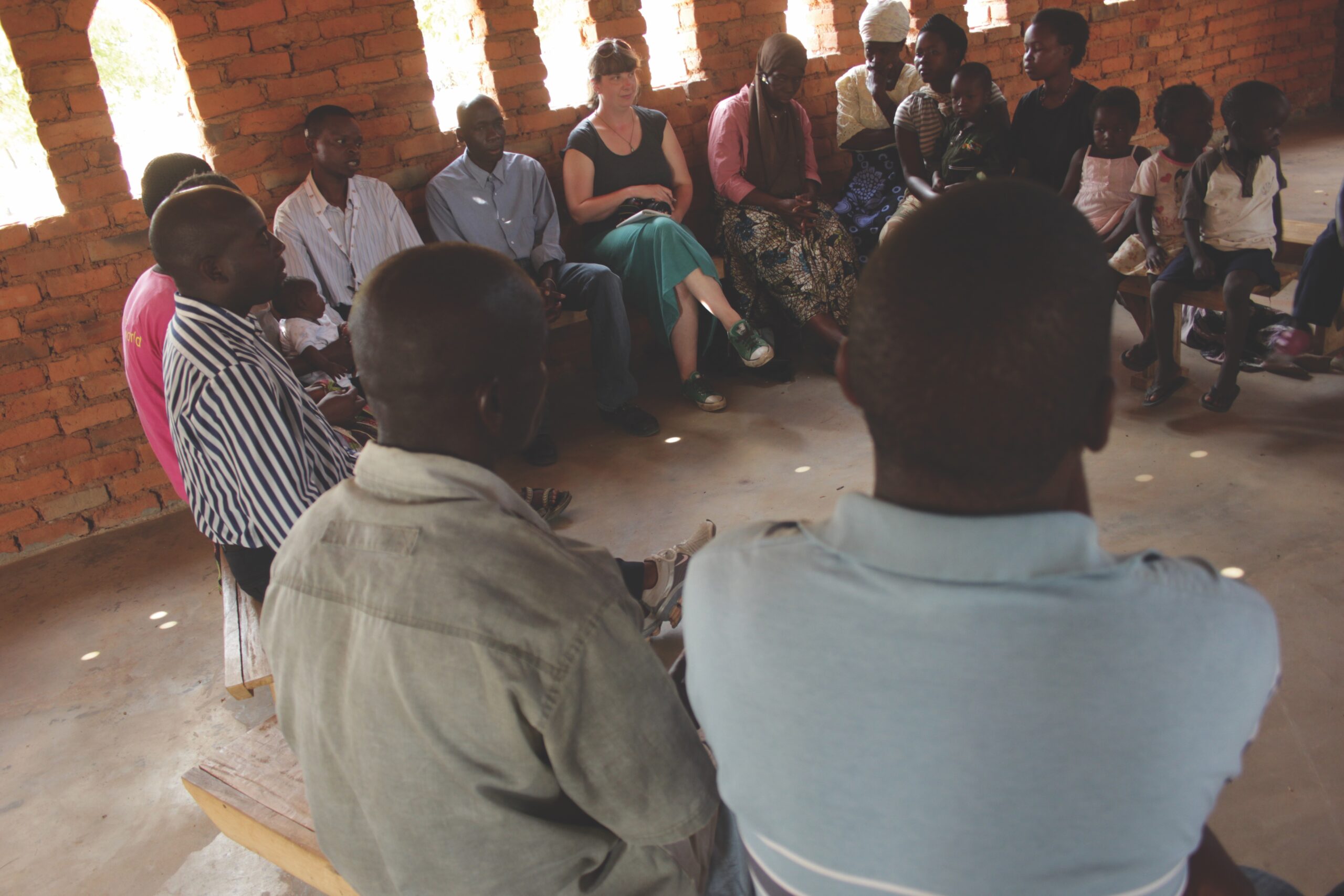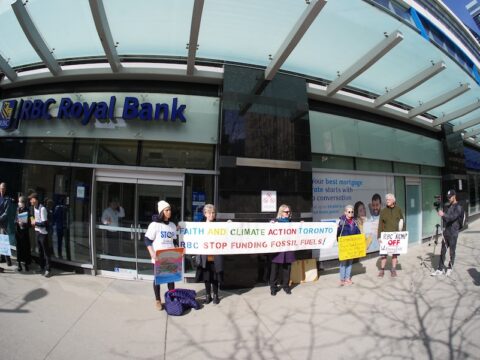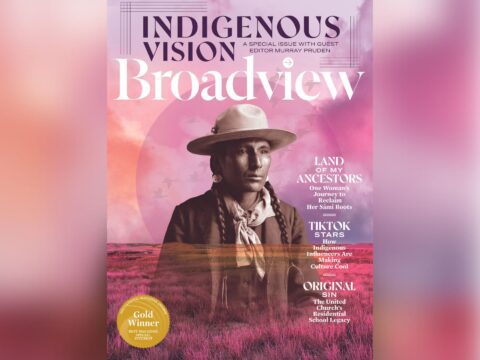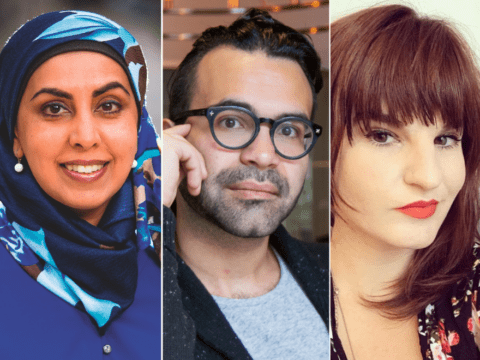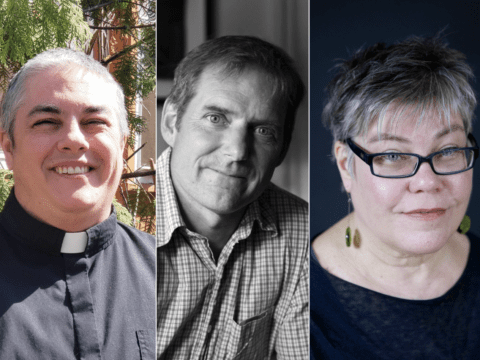My head is hanging out the car window like a dog. I can’t get enough of this. It’s mid-afternoon in mid-November. We’re halfway between Lilongwe, the capital city of Malawi where I landed, and Nkhotakota, the little group of villages I stumbled on 13 years ago. I haven’t visited since, though I’ve thought about Nkhotakota continually since I left.
Light puffs of grass smoke fill the air as farmers burn their fields. Thousands of kids and teenagers walk along the roads, their school uniforms bright bursts of turquoise and burgundy. Cyclists carrying entire families — including babies tied to moms’ backs — careen confidently. Other bikes carry sofa-sized loads of roof thatching, crates of Coca-Cola and bundles of firewood, preachers and teachers, carpenters and midwives; a countryside absolutely abuzz with work and learning.
You may unsubscribe from any of our newsletters at any time.
In the car with me is Alan Luca, our driver, and Emmanuel Kapeka, my silent African conscience, whom I befriended and abandoned 13 years ago.
Dusk comes, showcasing a blazing red sunset. Then darkness snaps down. People still fill the road, walking and riding in the night. I can hear them out the window talking, calling to each other. Bright orange flames dot the fields, and the car’s lights illuminate the swaying figures of women, plastic buckets filled with water balanced on their heads, walking home under the stars.
Back home in Vancouver, 10 hours behind, my family is sleeping. I’ve left my kids, David, 5, and Abi, 3, with my husband and his mother, to complete this piece of unfinished business — a mission that I’m already sensing is pathetically naïve.
Now that we’re nearing Nkhotakota, I’m anxious about it for the first time. I’ve come here for a week to make amends for a fundraising promise I didn’t keep 13 years ago. Now, I have a bank draft for US$3,400 in my bag. The money is a clumsy attempt to buy my way out of an old promise.
My intention, I believe, was good. I wanted to return to Malawi to figure out how to be in right relationship with Emmanuel and the other Malawians I’d met so long ago — to be an ordinary Canadian to ordinary Africans. And I wanted their help in considering Canada’s relationship to aid-dependent Africa.
Before my first visit, I’d barely heard of Malawi. It was a pink country on my map. Apart from TV news spots on Africa (famines, wars, AIDS, Nelson Mandela), charity advertisements (sponsor a child!) and a handful of African history courses at university, I had no idea what I was walking into.
Here’s a summary: back when the British roamed the Earth, Malawi was known as Nyasaland, a long, slim strip hugging the Great Rift Valley in south-central Africa. It gained independence in 1964, became a single-party state for decades under Dr. Hastings Banda and has held democratic elections since 1993. Nkhotakota is parched brown most of the year, but greener and sopping in the rainy season. Farmers grow tobacco, maize, cassava, tea and sugar as cash crops. About four in five people are Christian; the others are Muslim. Most of Malawi’s 15 million people live on a dollar a day.
In 1999, I went to Africa for an internship through the Canadian International Development Agency (CIDA). The job involved a year split between church-supported KAIROS in Toronto and a similar non-profit in Johannesburg, South Africa. I was 25 at the time, an earnest church nerd with a degree in history.
After I completed the Johannesburg stint, I hopped around southern Africa for several weeks, hitchhiking in the back of pickup trucks, growing sun blisters on my shoulders and staying in hostels.
In Nkhotakota, I stepped into what looked like a television charity advertisement: grass-thatched roofs, goats and young kids milling about, hunger, AIDS and malaria. AIDS had taken the region’s population down to 40,000 from 60,000, nearly wiping out the middle generation. It was the first time I’d seen this side of Africa up close.
I stayed at the Livingstone Mission, adjacent to the offices of the Movement for the Social Advancement of Disadvantaged Youth (MOSADY). This small volunteer organization was run by a crew in their 20s and captained by Emmanuel Kapeka, then 22. Its aim was to train teenaged orphans, most of whom didn’t have the chance to go to school, in trades that would allow them to make a living, such as tailoring, tinsmithing and carpentry.
I was captivated. Not just by MOSADY’s mission. For three days, Emmanuel was my guide to this Africa. Through his excellent English-Chichewa translation skills, he led me into his world. He placed babies, recently orphaned by AIDS, in my arms. He introduced me to old women suffering from malaria. He walked me around from village to village in the burning heat, fading from hunger and thirst, so I could meet the village chiefs.
Before I left Nkhotakota, Emmanuel asked me for money to buy formula for the fuzzy-haired baby Belinda — one of the orphans in his sphere. I handed over the equivalent of $4. Then he asked me to fundraise for MOSADY when I returned to Canada.
Of course, I agreed.
And of course, I didn’t realize what awaited me back home. To be brief, it involved a cross-country move, a wedding, two years of journalism school, debt, another cross-country move, three years of ego-busting work learning how to report the news, another cross-country move back to Vancouver, five more years of gruelling newspaper work, then baby number 1, then baby number 2.
Yet, like Evita Perón, the truth is I never left Nkhotakota. So, I gathered my courage, pitched this story to The Observer and did some fundraising. Part of the $3,400 came from media workshops I presented to United Church congregations. Part of it came from donations I sheepishly solicited from friends and family, and accepted at my 38th birthday party.
The story I planned to tell involved going to Malawi, making an apology, having it accepted and learning how to be in right relationship with my African buddies — ordinary people bridging continents in a post-colonial, digital age.
Instead, this happened.
On my first morning in Nkhotakota, Emmanuel drops by the cinderblock guesthouse. I sit him down and say, “When I came here 13 years ago, you asked me to fundraise. This isn’t as much as I wanted to give. You can use it any way you wish. The promise I made was to you. Use it for MOSADY, to educate yourself or your kids, or anything else you think your community needs. I trust you to use it in ways that will make the most impact for your community.” I hand him the bank draft. No reaction.
“And, I brought a bunch of cellphones.” Suddenly, he is excited. He immediately wants to go to his bank. An hour later, my cramped, sweaty body unfolds out of a van, like the last clown out of a Volkswagen. Then, we hop on bike taxis — an upholstered board on the back of a bike — and careen past sugar plantations, my jostling heft causing the lithe driver to sweat. Half an hour later, in the middle of what seems like nowhere, we enter the bank. The teller accepts the cheque but says it will take a month to process.
So far, Emmanuel hasn’t said thank you. In fact, he seems to accept the money with the air of someone accepting payment on a debt. Which he is. Sort of.
On the return journey by bike and bus, I ponder what I wanted from him. Frankly, I want to be free of the feeling that I’ve betrayed Africa. I had hoped Emmanuel would not only say, “I forgive you,” but also, “Really, you didn’t owe us anything in the first place.” After all, I was just 25 when I promised to fundraise. I wouldn’t have taken my own pledge seriously.
And yet, the promise hung with me, just as it had with Emmanuel. We’d both grown older and fatter, married and had children, joined the workforce, dropped some of our idealism. Yet I’d felt I couldn’t face him without cash in hand. Maybe I’d get that forgiveness later.
It’s stage time. More than 20 people face me, seated around a long table in the guesthouse’s living room. This is the membership of MOSADY. It includes ministers, teachers, mothers with babies, elders and youth. Bottled Cokes and Fantas have been passed around. Two fans, pointed at the crowd, hum distractingly. This is it: my chance to ask for forgiveness.
Emmanuel introduces me. “This is Pieta, who came here 13 years ago. She promised to fundraise, and then she disappeared. So she’s back to ask our forgiveness. She has come as a journalist, not as a donor. Our hope is that she will carry our story home, and others will be moved to donate.”
Even in my nervousness, my gut twinges. Not a donor? Didn’t we just bring $3,400 to the bank?
“Thank you all for coming,” I say. “Thirteen years ago, I made a promise to fundraise. The reasons I didn’t do it won’t make sense to you. But I wanted to come here to let you know that I’m sorry, and I hope you’ll forgive me. Sadly, Emmanuel met me those years ago, instead of a wealthy woman.”
Laughter, of course. This is an easy crowd. I do my best to explain life in Vancouver — the expensive houses, the cost of education, the way money flows in and goes out again. I cobble together an explanation of why Canada is relatively wealthy: the forestry, mining, farming, oil sands and other resource-based industries that have, in large part, funded our impressive social infrastructure. We know this kind of economy is coming to an end, I say. Again, I ask their forgiveness.
One by one, members of MOSADY rise to give speeches, translated by Emmanuel. Thank you for coming. You are forgiven. Please see our plight. We are in need.
I am forgiven in words. But there’s no sense of catharsis. I can tell amends have not been made.
On the ground in front of me sit over 100 preschool-aged orphans, their caregivers and the village leaders. This is the first stop on what will be a punishing two-day tour through rural Nkhotakota. Unlike the kids I know from Canada, these ones sit still and listen attentively. The jacaranda trees offer shade but no real relief from the heat.
“Muli bwanji,” I start out — the only piece of my speech that needs no translation from Emmanuel. “I have come here as a journalist, but I am also a mother,” I say, to the apparent delight of the crowd. “We all want the same things for our children: health, safety, love and opportunity. And the children I see before me are obviously being cared for with great love. Canada also has orphans. But in Canada, we have no equivalent to this orphanage.
“I am embarrassed that Canada’s government has cancelled all bilateral aid to Malawi as of 2014,” I say, gaining steam. “I don’t believe the people of Canada support the decision. It is my hope that Canada’s government will reinstate bilateral aid!” Translation, then applause. This feels good.
To Emmanuel, I guess, this is what making amends looks like. I must witness his Malawi on his terms. And then do something about it.
In each village we visit — over 15 of them — his plan is the same. There’s a gathering under a tree. Villagers mostly sit on the ground, the chiefs and I in wooden chairs. Emmanuel makes a speech, explaining my old, failed promise (no mention of the $3,400) and the hope that my writing will bring Canadian money. I make a speech. We observe MOSADY students sewing on old foot-pedal Singers and chopping at wood with vintage carpentry tools.
By the time we’ve visited several of these villages, I’ve seen enough to push back a little. The hardship tales — though undoubtedly true — are flying fast and furious. Our roof has holes. These kids can’t afford to go to secondary school. We don’t have enough money for the equipment to start this business. And the reason for the narrative is always the same: Please give us money. Pieta, please give us money. Canada, please give us money.
I begin to wonder, why are you looking to me for these things? Why not look to your government?
So I start questioning everyone I meet: Why aren’t you asking your own government for this stuff? Malawi recently dropped school fees for primary schooling; why isn’t secondary school free as well? Do you pay income taxes? If you open a business, do you pay tax? The answer is no. No taxes, no expectations.
I had thought that the relationship between Canada and Malawi was broken. It seemed that the more important relationship — that of Malawians to their own government — was also fractured.
At the end of the second day on display, I’m feeling deeply confused and raw. We meet with yet another village in a stone church. I hear about the roof. It has holes. Here’s an abbreviated version of what I say: “Your church’s roof has holes in it. The churches in Canada do not have holes. But I’ll bet you that on Sunday morning, this place is full.” Nodding. “The churches in Canada are mostly empty. There is a relationship between the kind of wealth Canada has and the loss of faith, of community, of environment, of family, of culture. What would you rather have — a solid roof and an empty church, or a full church and holes in your roof?” A pause, and then everyone says the same thing: holes are preferable.
Even as I say this little speech, I know the oversimplification is stupid. I’m frustrated with the villagers’ ignorance about where money comes from, the dependence narrative, the misunderstanding about Canada and the guilt trip on me for not fundraising. I am, in other words, getting ready to forgive myself.
The next day, I refuse Emmanuel’s plan to tour yet more villages. I go to the beach.
Before I left for Malawi this time, I thoughtlessly believed that the link between Emmanuel and me was green — aid money, to be exact. Instead, I discovered, it is slick and black — oil.
Looking out across Lake Malawi is a lot like looking out across Lake Ontario. Grey clouds meet dark waves on the horizon. Bordered by three countries, it’s the third-largest lake in Africa and the region’s major source of cheap protein. Deep below the fishermen’s ubiquitous dugout canoes, a multibillion-dollar deposit of oil lies waiting.
How much is there? When I arrived in Malawi, corporations from six countries — none of them Canadian — were bidding for the chance to explore and find out. Shortly after I left, Malawi awarded the contract to the United Kingdom’s Surestream Petroleum, an eight-year-old start-up that works exclusively in Sub-Saharan Africa. In a promotional video on its website, Surestream notes that fish stocks on the lake are declining, explaining the dilemma like this: “The challenge is finding a new source of income. Tourism, agriculture and fishing are key to the strategy. But there may be another option, which if successful could transform Malawi’s economy.”
That other option is, of course, drilling under the lake for oil. In other words, Malawi could become an Alberta or, more precisely, a Newfoundland — if substantial oil is found, if it is developed in an ethical and careful way, and if Joyce Banda’s government is able to harness the money and expand education and infrastructure.
Back in 2003, I spent two weeks in Fort McMurray, Alta. It was the first time I’d seen resource money up close. Plowing through the snow, Ford F-250s carried kids to private gymnastics classes and to the Tim Hortons drive-thru, where cashiers earned (so it was rumoured) $25 an hour. The Keg was packed. Live bands rocked the Newfie bar every night.
Fort McMurray and places like it, I learned during my stint north of 60, are the root of Canada’s wealth. About 20 percent of our gross domestic product is directly or indirectly drilled, sawed, netted and plowed. All other money that circulates through this country, earned by urban artists and activists and ministers and cleaners, is only a step or two away from the dirt.
Last November, International Cooperation Minister Julian Fantino announced his plan that CIDA will be working more closely with private Canadian mining companies in extending development. My Facebook page, where the left is well represented, lit up with outrage. Critics argued this means Canada’s $5 billion in aid money will be used to subsidize mining interests rather than pure “development.”
“Isn’t it a little ripe,” I couldn’t help thinking, “that Canadians can afford a socialized health-care system and subsidized post-secondary education on the back of resource extraction, and now my peers reject aid money going to support Canadian involvement in developing the same thing in Africa?”
Are Malawians supposed to keep their hands outstretched to us forever? Where, Canada, is our post-industrial green economy that would demonstrate to Malawians what can be done in the absence of drilling? Oh yeah. We haven’t achieved it ourselves. So drill, baby, drill. Right?
I lie awake thinking one boggy night under the ill-fitting blue bed net. What’s the ultimate goal of development? For everyone to live like 21st-century Canadians, arms stuffed with iPhones and Costco roasts? Shouldn’t we instead, for the sake of the planet, strive to live like Malawians?
I also peer uncomfortably into my own heart. Besides failing to fundraise, I did all kinds of dumb, hurtful things in my 20s, which deserve apologies of their own. Why was it so important for me to come to Malawi, to execute this particular little Jesus-inspired pas de deux?
Well, here’s the ugly truth: it’s easier. In spite of the Internet, the people here are not my neighbours. If I screw up amends, I never have to face them again. I can feel good about trying. The kudos I’ve already received for making the effort could turn the most grounded woman into a raving megalomaniac. But I was using Africa — an exotic, silent other — to receive my apologies for being young and being an idiot, 13 years ago and now.
I think about how Canada uses Africa, too. It’s easier, it seems, to condemn Canada’s corporate ambitions in Africa than it is to face our own dependence on the money that flows from oil and mining at home. So what happens when Africa “develops” and doesn’t need us anymore?
Fortunately, the next day’s visit to the District 18 public health clinic snaps me back to reality: Nkhotakota is still profoundly hurting. The clinic looks like a rustic Jiffy Lube in the middle of the bush, with a cavernous outdoor waiting room packed with patients, some slumped on the dirt floor.
It’s served by a couple in their mid-20s: the broad and bespectacled Yanjanani Mpalaka, with a two-year medical assistant certificate; and the willowy Merlyn Mpalaka, with a two-year nurse-midwife technician certificate. They’re on their own here, without a dedicated ambulance, and they see about 200 patients a day.
I knock on Yanjanani’s office door and peek in; he is vaccinating a boy. Finishing up, he makes time to see me. I ask him why I don’t see as many sick people in 2012 as I had in 1999. He explains that the government now provides malaria pills. Most regions in Malawi are well supplied with anti-retrovirals, so HIV is not the immediate death sentence it once was. They don’t see much malnutrition anymore, unless there’s an underlying illness or infection. Water wells have been effective at reducing water-related illnesses. Aid, evidently, has minimized misery here. Of course.
I walk to the secondary clinic building, a low shed that serves as the maternity ward. In her office, Merlyn explains that she delivers about 15 babies per week, plus prescribes birth control pills and implants. Most women in the district, she says, bear six to eight babies. She tells me last week “wasn’t bad” because they’d lost just one mom, who had hemorrhaged at home after having a baby in the clinic. Then it’s time for me to go. On to the next village to see another tailoring demonstration, meet the chiefs, give a speech.
It isn’t until hours later that it hits me: somewhere in this district is a week-old baby without a mom. Riding in the back seat of the car, my eyes burn. My throat, already parched, aches. I ask Emmanuel, who is sitting next to me, “Do you remember baby Belinda, the orphan who needed formula?” I’d been trying to picture the fuzzy-haired infant as a 12-year-old. “What happened to her?”
“She died,” he says. “Before she was one. Do you want to visit her village?”
“No,” I answer immediately. Too intense. This is too much.
Where Nkhotakotans were alive and thriving, I was annoyed by their demands, for seeing me as a soulless mzungu with a full wallet. But here, contemplating a dead baby and a motherless one, 13 years apart, my original desire to make amends — to be a better human — hits me hard again. And highlights how deeply I’m still failing.
Would baby Belinda have survived if I’d sent money for her back in 1999 and beyond? I could have afforded the $4 a week for formula, even as a student. This was a baby I’d held, someone whose eyes I’d looked into. This is the real danger of travel to the developing world: the personal attachment, the confusion, the responsibility.
In 1861, David Livingstone started a Congregationalist mission in Nkhotakota. The towering tree where he negotiated the end of the East African slave trade still stands. I stood under it. Adjacent to the tree are the All Saints Cathedral and St. Anne’s Hospital — both initiated by Anglicans about 30 years after Livingstone left the region; both carrying on his work, even in March 2013, Livingstone’s 200th birthday.
At St. Anne’s Hospital, I meet a woman with an 11-month-old daughter. She is also nursing her 10-month-old niece whose mother had recently died. The 10-month-old is thin — half the thickness of my own girl, Abi, at that age. She is not sucking enthusiastically, but lingering, eyes closed yet not sleeping. A chicken clucks softly on the far end of the ward.
Livingstone was certain about what to do here in Nkhotakota. Heal the sick. Spread the Good News. He wasn’t faced with a United Church member’s 21st-century quagmire. In 2013, what should I do for this new orphaned girl? Give her aunt money? Give to the Mission and Service Fund? Sponsor a child through a charity? Pray? Encourage Canadians to support oil development on Lake Malawi, in the hope that 13 years from now, her aunt will be driving her to gymnastics lessons in a Ford F-250 and eating at the Keg? Walk away?
On the last day of my visit, Emmanuel and I sit on an old couch in the screened-in porch of the guesthouse to have the “amends” conversation. He is elegant in his thanks. Quietly, he expresses how overwhelmed he is with the money. (“It’s over a million kwachas. You’ve made me a millionaire. No one in my family has ever seen this kind of money before.”) He says he hasn’t told anyone about it yet because he knows it would cause trouble. He is planning to tell his wife when the transfer comes through in January, as a surprise.
Emmanuel has been e-mailing me over the weeks since I left, asking how he should spend the money. I’ve refused to give advice — though I’d love to tell him to spend it on MOSADY and give teenaged orphans a chance at skilled work. This is his story, his choices. My two short visits to Nkhotakota don’t make me an expert on his community’s needs.
That said, he did e-mail me that his first purchase when the money came through was — of course — corrugated iron sheets to roof his home. Hole-free.
In the end, our amends are incomplete. He’s still hoping I’ll channel more money. I’m still frustrated that he doesn’t understand where money comes from or his own country’s route to self-sufficiency. Undoubtedly, these same conversations about aid and dependency also happen at the United Nations, at the World Bank, around Bill Gates’s dinner table, in the head of Julian Fantino.
I don’t know what the right relationship is between Canadians and Malawians. It probably hovers somewhere between Yves Engler’s anti-industry-as-aid manifesto, The Ugly Canadian: Stephen Harper’s Foreign Policy, and Daniel Ben-Ami’s Ferraris for All: In Defence of Economic Progress. Or maybe, it’s something else entirely.
Only one thing is certain: getting to know each other can’t hurt. To my Malawian friends, it seems, Canada is a cartoonish bonanza of uncaring wealth. To me, before I’d visited, Africa was a doomed danger zone of free-roaming giraffes and warlords. A sinkhole of aid dollars. A place to project my idealization of a simpler, less-monied existence.
Swerving through Nkhotakota’s market on a bike taxi my last day, I see a trio of white travellers in their mid-20s, dreadlocked and dirty, clearly committed to their journey. Maybe they are Canadian. I silently send them a wish as I whiz by: to invite this maddening, beautiful, swiftly changing place into their hearts, to struggle with it, to love it and to let it love them back. After 13 years, $3,400 dollars, two trips and a fraught friendship across 10 time zones, that’s the greatest hope I can offer.
***
This story first appeared in The United Church Observer’s March 2013 issue with the title “Making amends with Malawi.”

